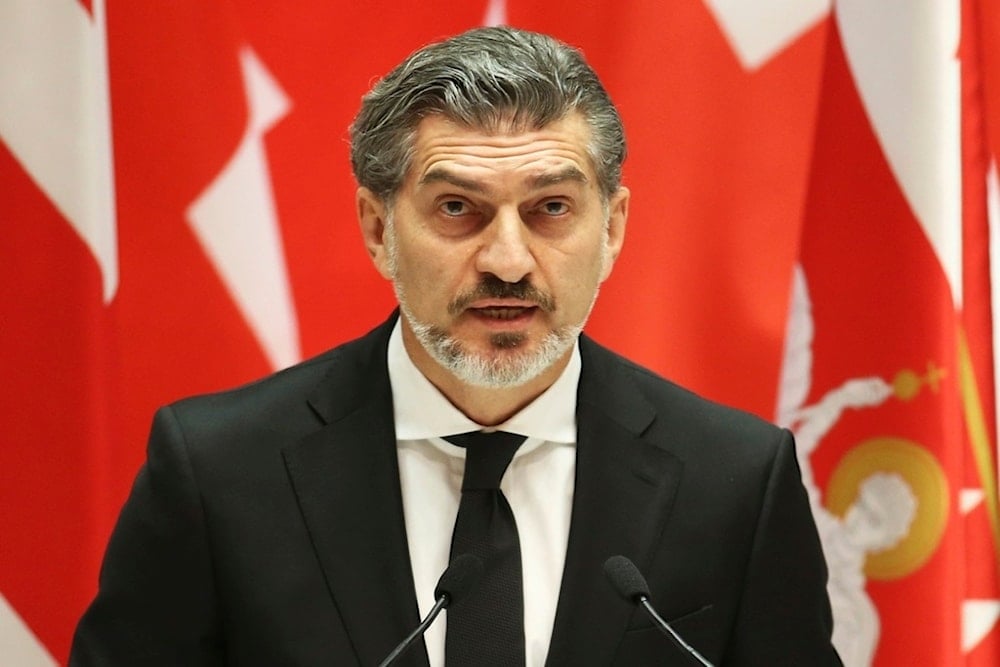Mikheil Kavelashvili sworn in as Georgia President
Far-right anti-EU politician Mikheil Kavelashvili was sworn in as Georgia's new president as his predecessor pledged to fight on.
-

Georgian President-elect Mikheil Kavelashvili speaks at his swearing-in ceremony at the Georgian Parliament in Tbilisi, Georgia, on December 29, 2024 (AP)
Mikheil Kavelashvili, a staunch critic of the West, assumed office as Georgia's president on Sunday, intensifying a political standoff following the government's controversial decision to halt European Union application talks, which has triggered widespread protests across the country.
Outgoing President Salomé Zourabichvili, a vocal pro-European advocate and critic of the ruling Georgian Dream party, addressed a gathering of supporters outside the presidential palace, declaring, "I am leaving the residence, but I remain the legitimate officeholder."
Zourabichvili disputes the legitimacy of Kavelashvili's presidency, asserting that his selection by lawmakers stems from an October parliamentary election marred by alleged fraud. The opposition parties have echoed her concerns, backing her claims of electoral irregularities.
However, the Georgian Dream ruling party and the country's election commission maintain that the October elections were conducted freely and fairly. They affirm that Kavelashvili was duly elected as the nation's president, dismissing allegations of impropriety.
Sanctions on Georgia?
Days after Mikheil Kavelashvili, the candidate from the ruling Georgian Dream party, was declared the elected president by the Central Election Commission Chairman Giorgi Kalandarishvili, the European Union foreign affairs ministers revealed they are now considering potential sanctions and restrictions on Georgia.
Significantly, Georgian Prime Minister Irakli Kobakhidze had earlier announced that the government had decided not to pursue EU accession negotiations and would reject EU financial support until 2028. The Georgian State Security Service also claimed that protests surrounding the December 14 presidential election were being orchestrated by foreign state actors aimed at disrupting the process.
In response to these developments, EU foreign policy chief Kaja Kallas stated on Monday that the situation in Georgia was not progressing as expected for a country seeking EU membership. "We are going to discuss the consequences for the Georgian government using repression on the opposition and all the tools they are using there," Kallas said.
She added that the EU would consider several measures, including sanctions and restricting Georgia’s visa-free regime. "One question is, of course, sanctions on Georgia, and the other question is also limiting the visa-free regime," Kallas remarked, ahead of the foreign ministers' meeting in Brussels.

 2 Min Read
2 Min Read








